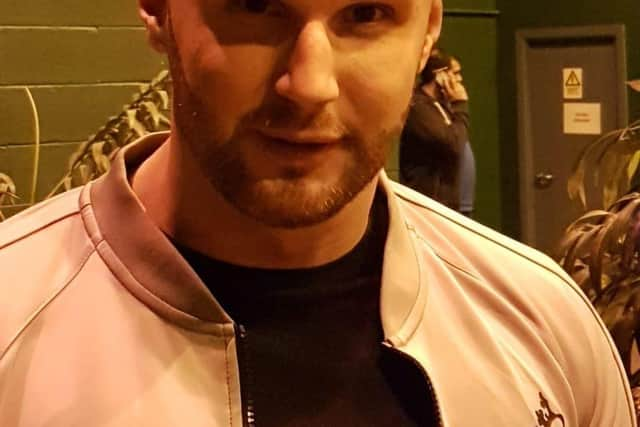Wigan man awaiting support for his mental health died after taking cocktail of drugs
and live on Freeview channel 276
Kurt Boydell was found at home in Ince on May 12, after the alarm was raised when he had not been seen for several days.
The 32-year-old was waiting for an appointment with mental health services at the time.
Advertisement
Hide AdAdvertisement
Hide AdBut while tests showed he had taken a cocktail of drugs – some prescribed and others not – coroner Stephen Teasdale did not believe he planned to die.


He was told during an inquest at Bolton Coroner’s Court that Mr Boydell had previously sent messages to loved ones and put posts on social media when feeling suicidal, but he did not do it this time.
Mr Boydell’s mood had also improved before his death and he had plans for the future.
The inquest heard Mr Boydell, who had spent time in the army and working as a scaffolder, initially took steroids before turning to cocaine and painkillers.
Advertisement
Hide AdAdvertisement
Hide AdHe suffered a number of physical injuries, complained of headaches and had a heart problem. He had post-traumatic stress disorder and anxiety, and there were incidents where he “lost time” and forgot what happened.
His mother Susan Boydell told the coroner he previously had suicidal thoughts and had taken overdoses of medication.
In December 2021, he spoke to his GP about the memory loss and admitted taking extra painkillers given to him by a friend.
His GP told the inquest he last spoke to Mr Boydell on May 4 and he was “very pleasant”, with no signs he wanted to self-harm.
Advertisement
Hide AdAdvertisement
Hide AdJanet Pantlin, an inclusion worker from Wigan Well-Being and Resilience Service, had been supporting Mr Boydell since November 2021.
She referred him to mental health services on February 28, after he spoke about the deaths of friends in the army and his mood dropped.
The referral was received on March 1 by the urgent response team and screening took place the following day.
After another call on March 4, it was decided a telephone assessment was needed.
Advertisement
Hide AdAdvertisement
Hide AdThis should have been done within 72 hours, but did not take place until April 7. Mr Boydell said he wanted to be seen in person and had not been given an appointment when he died.
Helen Eckersley, clinical lead for the urgent response team, told the court there was “high acuity” and “a lot of staff shortages” at the time, but admitted it was “not acceptable” that he had not been seen.
She said a lot of changes had since been made and people are now being offered an appointment in 72 hours – with veterans seen in just four hours.
Ms Pantlin became concerned when she went to see Mr Boydell on May 9 and 11, but received no response.
Advertisement
Hide AdAdvertisement
Hide AdHis mother went to his house on May 12 and found her son’s body.
Toxicology tests showed he had taken a potentially fatal amount of painkiller oxycodone, cocaine at a level “consistent with recreational use”, and other drugs including tramadol, diazepam, codeine and zopiclone.
Pathologist Dr David Barker found he died from combined drug toxicity, either from the combination of drugs affecting his central nervous system or from the cocaine affecting his heart.
Mr Teasdale recorded his death was drug-related.
